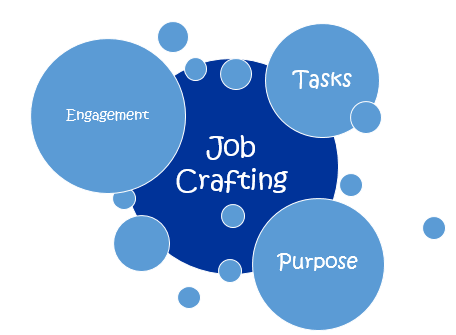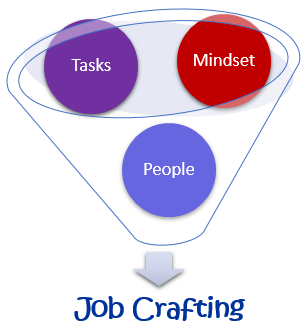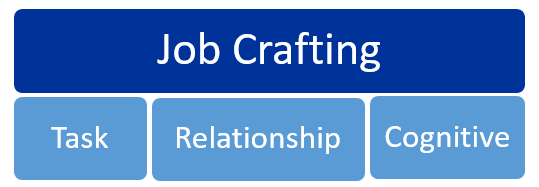Job crafting refers the proactive steps and actions taken by employees to redesign their work to change tasks, relationships, and perceptions about their jobs. An employee finds opportunities to customize their jobs by actively changing their tasks and interactions with others to meet their personal satisfaction. Essentially, they “craft” themselves a job they love.

Job Crafting Defined
Job crafting is a proactive approach initiated by an employee to shape their own work environment to fit their individual desires by adjusting tasks, relationships, and perceptions of the jobs. The goal is to stay in the same role, but getting more meaning out of it simply by changing what they do, and how they do it, and why they do it.
Benefits of Job Crafting
The benefits of job crafting go beyond simply altering the job functions to align with personal interests. Employees who modify their jobs to take advantage of their best talents and abilities will be more engaged with their work, which leads to improved performance. Also, happier employees are more likely to stay committed to the organization long-term.
Additionally, job crafting helps an employee develop more skills and grow as a professional, and helps create a more purposeful and enjoyable life for that employee.

About
Employee use job crafting to change a job to make it more engaging and meaningful. It allows them to find their purpose within their work environment.
The employee takes the job they already have and make changes to it that are improvements to them and make it a better fit for them as an individual. They still perform the job functions and meet the requirements, but simultaneously align the role with their strengths, motives, and passions. By doing so, they feel better and they are more likely to perform better and to be more engaged in what they are doing.
Types of Job Crafting
Job crafting was first introduced by researchers Dr. Amy Wrzesniewski and Dr. Jane E. Dutton. They defined job crafting as actions that employees take to shape, mold and redefine their jobs.
Wrzesniewski and Dutton identified three main ways that employees can make positive changes to their own jobs:
- Task Crafting
- Relationship Crafting
- Cognitive Crafting

Task Crafting
Task crafting is the most popular approach. It refers is altering aspects of how they want to undertake responsibilities, including changing the type, scope, sequence, and number of tasks that make up the job to improve it in some way.
Relationship Crafting
Relationship crafting refers to altering the type and nature of the interactions with other people such as forging new interdepartmental relationships or task forces. It helps change who they work with, who they communicate with and who they engage with on a regular basis.
Cognitive Crafting
It simply means a change in mindset. It refers to how an employee can change the way he or she looks at or interprets the tasks for which they are responsible.
